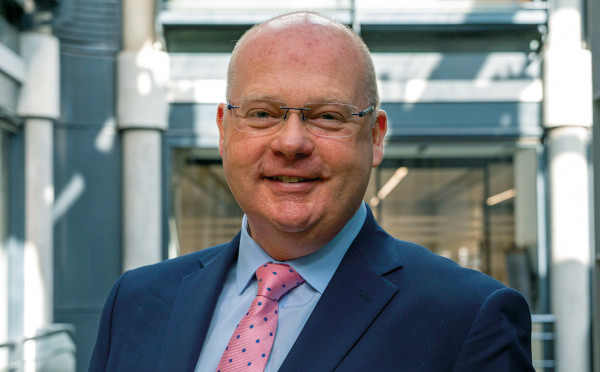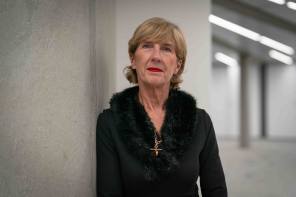

Steve Pennington, head of wealth planning at Arbuthnot Latham, says: “A great adviser is essentially one that is really knowledgeable and has a lot of technical skills.
Having said that, Mr Pennington also says that many advisers do not keep up with their continued professional development, which is preventing them from gaining further knowledge.
“Having that blend is a challenge for the industry; there are a lot of advisers who don’t keep up with the CPD, and there is a good industry-wide push on knowledge, skills and professionals by the Chartered Insurance Institute, the Personal Finance Society and the Chartered Institute for Securities & Investment.”
“Private client advisers require [a wide] range of really broad technical skills.
“My clients enjoy holistic advice, so my advisers need to be very grounded in wealth accumulation and decumulation.”
Mr Pennington says the lack of technical skills comes at a time where there is an “advice gap” in the industry.
Advice gap
But despite the skills shortage, he says robo-advice can only be used to serve the mass affluent, and not the high-net-worth community.
“There is certainly a place for guided robo-advice,” he says.
Mr Pennington adds: “It is very applicable to the mass affluent, as one of the key issues in wealth management is the advice gap; [robo-advice can help] those individuals that need advice, but perhaps don’t best suit the private client and wealth management framework, who still need access to readily available support.”
He says the next big focus for Arbuthnot Latham is to grow the team and close the shortage in advisers.
Mr Pennington says the financial services industry is now based more on an “advice-driven” model than was previously the case.
“In the past the industry could be accused of selling financial products; now it is moving much more to an advice-driven model.”
He says this comes with three specific challenges.
“One is ensuring that their long-term relationship [between advisers and client] is of mutual benefit, so the first challenge is winning trust [with the client].”
The second is about having the right tools.
He explains this includes using cash flow planning software to enable clients to understand their options, as well as to model “what if scenarios”.
The third challenge is “having the right support mechanism”, which he describes as having the right financial advisers in place.
Mr Pennington says the company’s key product is the advice it provides.
He explains that Arbuthnot Latham, which began as a heritage boutique business in 1833, provides a combination of treasury, capital, credit, investment and wealth planning services.
“We provide advice on areas such as wealth accumulation, how to use tax structures or investment structures to accumulate wealth in a way that gives [clients] flexible access to wealth, or we can talk to them about their retirement planning and estate planning,” Mr Pennington says.
As Arbuthnot Latham is a private bank, it caters to high-net-worth individuals with typically £1m to invest, or those looking to borrow a similar amount.
Bridging generations
Mr Pennington says intergenerational planning is becoming more common across the industry.
“Often clients are lacking advice in their earlier years, and one of the key things advisers can alert them to is opportunities for planning in their later years,” he says.
Mr Pennington adds: “We have a lot of conversations where we have multi-generations of families around the table.”
He highlights that a key part of HNW planning involves not only identifying preferences of clients, but also providing for their beneficiaries.
Mr Pennington says working for HNW individuals inspired his entry into the wealth management industry.
“I joined the wealth management industry because I am interested in having a technical role in what is otherwise known as a services-based industry,” he says.
The financial crisis of 2008 also played a pivotal role in Mr Pennington’s decision to pursue wealth management.
“After the market crash of 2008, I found an opportunity to work in the HNW sector, and I have been advising HNW clients since.”
“Some of my most interesting years were advising VIP clients for Barclays, which ranged from advising politically exposed people to entrepreneurs and HNW clients,” he adds.
He entered the industry in 2006, working for the Bank of Scotland Investment Service.
“I learnt to grow my own practice; my remit was to find and engage my own clients, which gave me opportunities to meet interesting people, and I then became aware I wanted to advise HNW individuals.”
Mr Pennington says HNW clients can at times be overly focused on geopolitical events.
At the time of writing, coronavirus has infected more than 80,000 people in China alone, where the outbreak originated. More than 5,000 have passed away due to the pandemic.
But he cautions that all clients need to be aware of the impact of global events on overall wealth.
He thinks it is important for individuals to take a long-term view and remain invested.
“Those who took a long-term view during the big issues of the financial crisis and stayed invested won in the end, and those who took a short-term view and moved into cash often lost.”
He urges financial advisers to retain their clients’ positions to prevent clients from missing out on lucrative opportunities.
Saloni Sardana is features writer at FTAdviser and Financial Adviser



